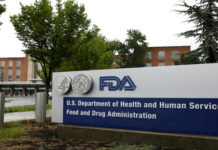In late 2020, Pfizer, a drug manufacturer, faced challenges in meeting its Covid-19 vaccine production targets due to quality issues with raw materials, causing disruptions in the global supply chain. The situation worsened in March 2021 when contamination issues were discovered at one of their vaccine production sites, raising public concerns in the US. The site, located at the Mcpherson factory in Kansas, had a history of contamination, with instances of mould growth on equipment and the presence of glass and cardboard particles in medicine vials from previous years. As a result, regulatory authorities issued a warning about the serious risk to patients and demanded a recall of the affected drug.
These types of cases are quite common. With an increasing number of pharmaceutical companies relying on third-party contract manufacturers to fulfil global orders, outsourcing has become prevalent. While this decentralized model offers cost advantages, it also leads to fragmented communication among stakeholders. Consequently, many drug manufacturers struggle to gather critical quality parameters in a timely manner when issues arise, impacting product effectiveness, safety, and compliance with regulations.
Tracing information throughout the value chain is becoming increasingly crucial in today’s integrated supply chain landscape. Being able to swiftly identify the origin of issues and isolate negative outcomes requires reliable and efficient traceability. However, supplier ecosystems still rely on historical snapshots of information, highlighting the need to integrate stakeholders and enable real-time information exchange in complex supply chains. The pharmaceutical industry is witnessing numerous data management innovations to address this need.
Blockchain technology facilitates connecting the dots and bridging gaps in performance by offering an interoperable system that operates across organizational boundaries. Regardless of where a drug is manufactured or where raw materials are sourced, brand owners can exert greater influence on the final product by ensuring that ingredients meet stringent global standards throughout the entire production process.
Blockchain technology plays a crucial role in promoting closer collaboration among stakeholders within the pharmaceutical ecosystem, making it the preferred communication technology for life science product developers and multi-tier contract manufacturers. Previously, small and medium enterprises (SMEs) relied on manual methods and tools like MS Office, which often resulted in errors. Large enterprises faced their own set of challenges, such as the complexity of implementing expensive enterprise-wide solutions that could adapt to the dynamic nature of production.
In the pharmaceutical sector, data privacy concerns are of utmost importance, and stakeholders have legitimate worries about data transfers lacking proper checks and balances. Blockchain addresses these concerns by enabling permissioned-access communication, fostering trust and transparency throughout the value chain. The immutable nature of blockchain ensures that records are tamper-proof, providing reassurance to all parties involved.
Adopting blockchain-driven collaborative platforms in the pharmaceutical industry provides specific advantages, including reducing the burden of regulatory compliance. Compliance pressures in the pharma sector have reached unprecedented levels, with the FDA issuing numerous warnings and citations to prominent drug companies. A blockchain-led platform mitigates manufacturing risks that hinder compliance by providing secure and timely access to documentation across external development and production supply chains. Pharma organizations can go on to establish specific roles and permissions for data entry, transfer, viewing, and approvals, aligning with standard operating procedures. Blockchain also enables a complete audit trail of process changes and data entries, establishing a persistent product and process data library throughout the manufacturing and distribution lifecycle. Combining blockchain with real-time geolocation and biometric tracking via QR Code serialization allows shipments to be traced from the factory to the end consumers.
Real-time data provides immediate visibility in the pharmaceutical sector, meeting the industry’s need for on-demand information. Unlike traditional certificates that provide a snapshot of a specific moment, blockchain technology allows for the creation of comprehensive records that verify the quality of raw materials and components used throughout the entire process or batch. These batch records play a vital role in ensuring consistent quality assessment, enabling timely identification of issues and necessary adjustments in downstream operations. By utilizing low-code blockchain solutions, organizations can foster collaboration by developing customized tools that enhance visibility and transparency. This empowers stakeholders to communicate effectively between Enterprise Resource Planning (ERP) and Quality Management System (QMS) systems, while also enabling them to monitor operations through scorecards, dashboards, and event management strategies, thus ensuring effective control.
Technology has the potential to accelerate digital transformation, foster innovation, and enhance productivity and quality while reducing time to market. Low-code workflow builders can be deployed quickly, offering user-friendly interfaces that are easily configured. These solutions require minimal infrastructure, customization, or coding. Authorized users can start creating process definitions, defining steps, and setting parameters within hours. Workflow trackers can be connected to other digital data sources through APIs, generating electronic approvals or rejections and setting control limits and parameter specifications for batches or shipments.
These interventions create a ripple effect, enhancing productivity, quality, and dependability in the production of drugs. Moreover, they encourage innovation and streamline adherence to regulations, ultimately driving a significant overhaul of the pharmaceutical supply chain.






















